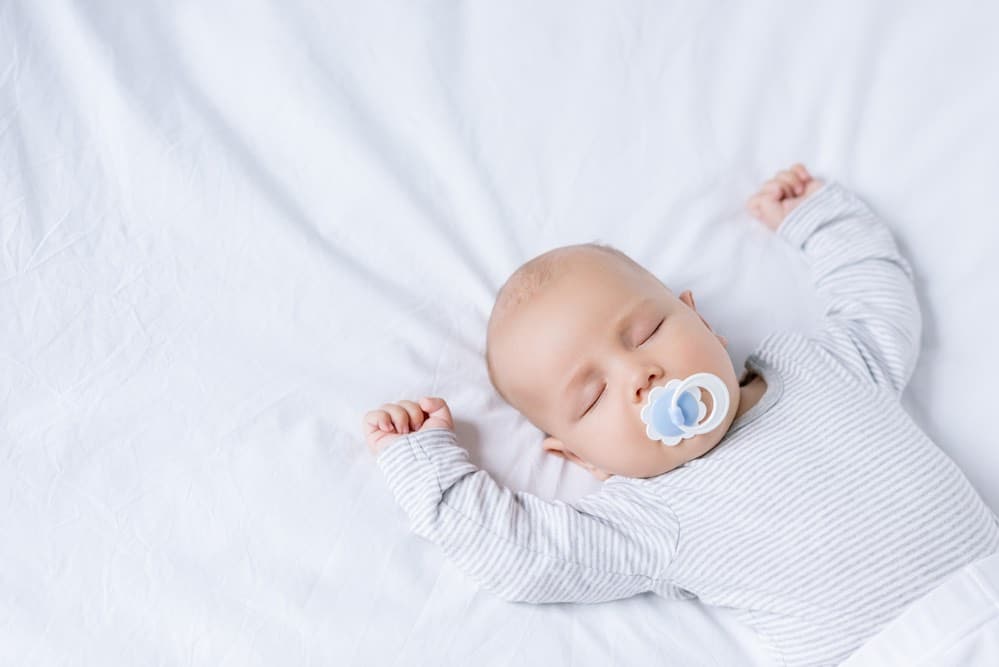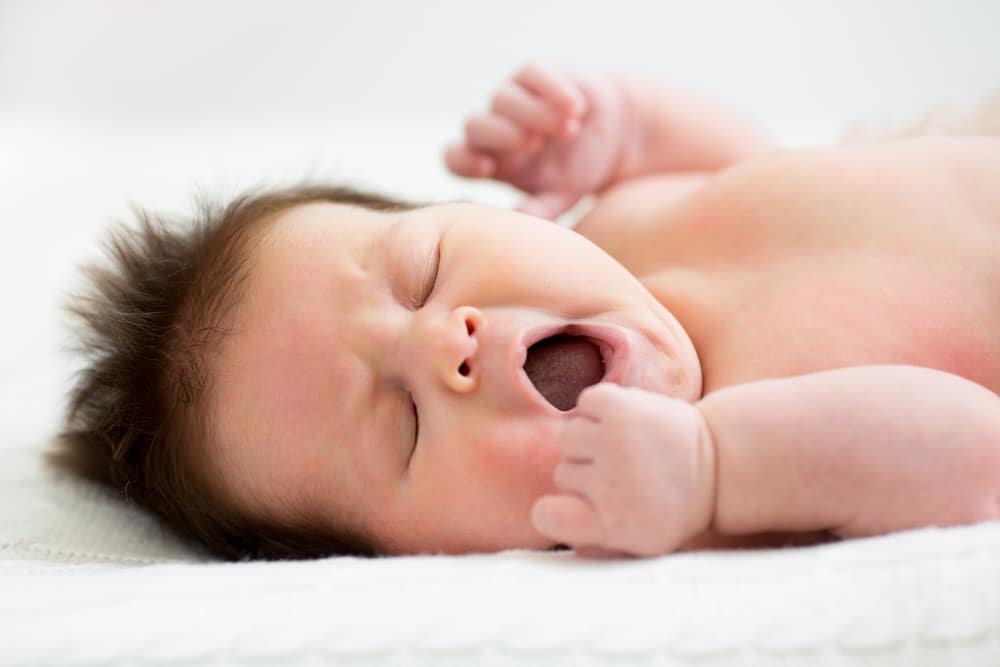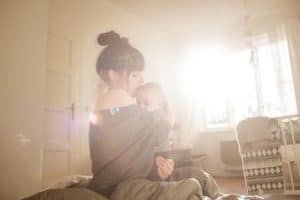
Getting baby to sleep is always top of the list for mum’s greatest wants and parenting hurdles. But what if the greatest barrier to getting your little one off to beddybyes is how long they’re actually spending awake? Baby awake times could be the answer you need!
Tara Mitchell from The Gentle Sleep Specialist is a paediatric nurse, qualified infant and toddler sleep consultant, she suggests that an overtired baby can be one of the reasons that we can’t get bubs to sleep.
Here is Tara’s expert advice on managing baby’s routine, monitoring their awake periods and avoiding a cranky, hard-to-get-to-sleep overtired little one.
Tired signs can be deceiving
Are you struggling with your little one’s sleep? Do you find yourself constantly trying to catch the slightest sign that your little one might be tired, only to put them down and watch a train wreck unfold? You’re not alone. Tired signs can be deceiving!
It is not uncommon for parents to speak of utter confusion when it comes to picking signs their little one may be ready for bed. Infants and toddlers don’t always present the way we would imagine when tired. In some children for instance, yawning, rubbing eyes and whinging does not necessarily mean they’re ready for bed. Then there are others who come across wired and hyperactive, finding it really hard to unwind – sleep seems out of the question by this stage! So I’d like to share with you how I work with my clients to bring about more peaceful settling times.

Why baby awake times are key to teaching baby to self settle
Lasting positive sleep habits and peaceful nights are achieved when your little one has the skills to self-settle. However, an important part of this is to have your support to learn these skills. When it comes to identifying tired signs, I encourage my clients to use baby awake times I that I believe are best suited to the age of the child. Thirty minutes before these times, start to observe your little one’s behaviour to see if you notice any tired signs or changes in behaviour or mood.
A guide to baby awake times
Here’s a basic guide to the appropriate amount of baby awake time a little one should be having by age.
Please note, these awake times are based on a child who is taking proper naps and having reasonable sleep overnight. If your child is catnapping or waking a number of times overnight, these awake times may not be suitable. Every child is different and there really is no one size fits all. However I find when I work with these awake times as an approximate guide and then take into consideration the child’s behaviours around these times, parents often find the timing to be right on cue!

Newborns 8 weeks old and under:
45 min – 75 min baby awake time
This time should include feeding.
8 weeks old and over:
60 min – 90 min baby awake time
If your little one is taking short naps, you might find 60 minutes is a stretch and that’s ok. I would rather you put your baby down more regularly than end up with an overtired infant. Some people find their children manage well with a greater awake time and that’s okay too.
4 – 6 months old:
1 hour 45min baby awake time
At 4 months of age, start with 1h 45min and then slowly work up (over a couple of months) to an awake time of around 2.5 hours as your little one reaches 6 months and older.
7 – 12 months old:
2.5 hours – 4 hours baby awake time
Around 7 months you may find your little one is still settling well on 2.5 hours awake time. As they reach 8-9 months, 2h 45min – 3 hours might be more manageable, and by 12 months your baby could be managing an awake time of 3.5 – 4 hours in between their naps.
12 – 18 months old:
During this time your little one might start showing signs they are ready to drop to one nap per day. I encourage parents not to rush dropping nap number two, and ensure that their little one is ready to extend their morning awake time until at least 10:30am. This way they are more likely to make it through to a reasonable bedtime (somewhere between 6pm and 7pm) without being exhausted.
I hope these baby awake times act as a helpful guide for you to understand when your little one may need to take a nap. Remember, every child is different, so it’s important for you to look out for the behaviour and mood changes that are unique to them. Happy Sleeping!
More sleep tips:
Baby naps
Over tired baby
Helping baby go to sleep
Night sleeps
- Steps to a better nights sleep
- Repetition and association, the keys to a good nights sleep
- Dream feeds
- Restless 6 month old sleeper
- 10 month old waking regularly
- Sleep regression
- 4 month old sleep regression
- Help baby to sleep past 5am
- Daylight savings impact on sleep
- Co-sleeping: midwife tips
Sleep aides
Routines and sleep associations
Baby room conditions
- Ideal room temperature
- Moving child’s sleep space
- Moving from co-sleeping to cot or bed
- Bassinet to cot














Pingback: Baby – no more short naps - Gentle Sleep
Pingback: Baby Sleep Consultant Answers all Questions on Getting Baby to Sleep | The Gentle Sleep Specialist